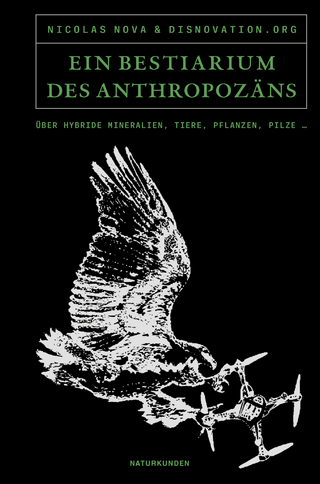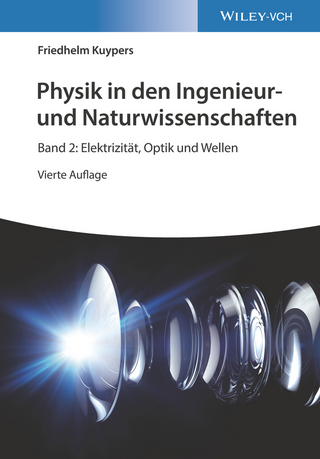
Microfluidics in Cell Biology: Part A: Microfluidics for Multicellular Systems
Academic Press Inc (Verlag)
978-0-12-814280-6 (ISBN)
Matthieu Piel and his team develop microfabricated and microfluidic tools to quantitatively control the physical parameters of the cell’s environment and study how cells grow, divide and migrate. The team focused on how physical confinement, geometry and forces affect cell division and cell migration. The general aim of these studies is to draw a line between the physics of the active matter cells are made of and the behavior of cells in the complex environment of tissues, in the context of the immune response and tumor development. Dr. Fletcher and his team develops diagnostic technologies and studies mechanical regulation of membrane and cytoskeleton organization in the context of cell motility, signaling, and host-pathogen interactions. His lab specialize in development of optical microscopy, force microscopy, and microfluidic technologies to understand fundamental organizational principles through both in vitro reconstitution and live cell experiments. Recent work includes investigating the mechano-biochemistry of branched actin network assembly with force microscopy, studying membrane deformation by protein crowding and oligomerization with model membranes, and reconstituting spindle scaling in encapsulated cytoplasmic extracts. The long-term goal of his work is to understand and harness spatial organization for therapeutic applications in cancer and infectious diseases. Junsang Doh is an associate professor of Mechanical Engineering/Interdisciplinary Bioscience and Bioengineering (I-Bio) in POSTECH, South Korea. Prof. Doh’s group develops and utilizes engineering tools such as microfabrication/imaging/mechanics to study fundamental aspects of immune cell behaviors, including synapse-based cell-cell interactions and motility under complex microenvironments, in the context of cancer immunotherapy.
Section 1: Microfluidics for Cell Monolayers/Spheroids 1. Tubular microscaffolds for studying collective cell migration Wang Xi, Surabhi Sonam, Chwee Teck Lim and Benoit Ladoux 2. Endothelial cell monolayer-based microfluidic systems mimicking complex in vivo microenvironments for the study of leukocyte dynamics in inflamed blood vessels Jaehyun Lee, Hyung Kyu Huh, Sung Ho Park, Sang Joon Lee and Junsang Doh 3. Constrained spheroids/organoids in perfusion culture Fan Lee, Ciprian Iliescu, Fang Yu and Hanry Yu
Section 2: Organs on Chips 4. Generation of functional cardiac microtissues in a beating heart-on-a-chip Giovanni Stefano Ugolini, Roberta Visone, Daniela Cruz-Moreira, Andrea Mainardi and Marco Rasponi 5. Kidney on chips Jeonghwan Lee, Kipyo Kim and Sejoong Kim 6. Liver sinusoid on a chip Yu Du, Ning Li and Mian Long 7. Pathomimetic modeling of human intestinal diseases and underlying host-gut microbiome interactions in a gut-on-a-chip Woojung Shin and Hyun Jung Kim 8. 3D in vitro microvascular model-based lymphoma model Robert G. Mannino, Pallab Pradhan, Krishnendu Roy and Wilbur A. Lam 9. Blood–brain barrier on a chip Eyleen Goh 10. Pharmacokinetic-based multi-organ chip for recapitulating organ interactions Jong Hwan Sung 11. Studying TCR T cell anti-tumor activity in a microfluidic intrahepatic tumor model Giulia Adriani, Andrea Pavesi and Roger D. Kamm
Section 3: Microfluidics for Model Organisms 12. Microfluidics for mechanobiology of model organisms Anna A. Kim, Adam L. Nekimken, Sylvia Fechner, Lucy E. O'Brien and Beth L. Pruitt
| Erscheinungsdatum | 19.09.2018 |
|---|---|
| Reihe/Serie | Methods in Cell Biology |
| Verlagsort | San Diego |
| Sprache | englisch |
| Maße | 191 x 235 mm |
| Gewicht | 810 g |
| Themenwelt | Naturwissenschaften ► Biologie ► Allgemeines / Lexika |
| Naturwissenschaften ► Biologie ► Genetik / Molekularbiologie | |
| Naturwissenschaften ► Biologie ► Zellbiologie | |
| ISBN-10 | 0-12-814280-4 / 0128142804 |
| ISBN-13 | 978-0-12-814280-6 / 9780128142806 |
| Zustand | Neuware |
| Haben Sie eine Frage zum Produkt? |
aus dem Bereich


